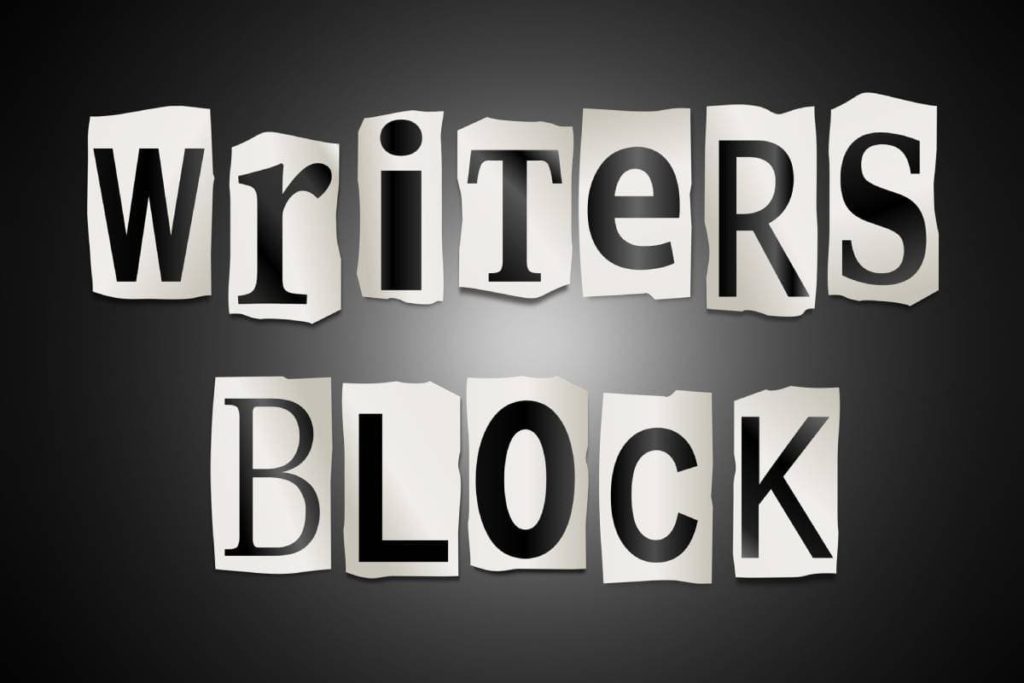All writers experience writer’s block at some point in their careers. This incredibly frustrating “creative paralysis” can discourage even the most passionate writers. Fortunately, writer’s block doesn’t last forever, and there are things that authors can do to overcome this mental barrier.
Writer’s block can last for a few minutes to several days. In extreme cases, long-term writer’s block can last for weeks, months, or even decades. There is no set duration for how long it lasts. Fortunately, long-term writer’s block isn’t common, and there are various ways to overcome it quickly.
This article delves into the duration of writer’s block, what causes it, and how to overcome it. Stick around to learn more and get those creative juices flowing again.

Is Writer’s Block Permanent?
Writer’s block is not usually permanent, although in severe cases, it can last upwards of ten years. But don’t panic! Long-term writer’s block is not as common as one might think. Most writers who experience writer’s block find that it lasts for hours or days, not weeks, months, or years.
Long-Term Writer’s Block
Although long-term writer’s block isn’t ubiquitous, it does happen, as evidenced by the many writers on the Internet who’ve described their experiences. Let’s look at a few of them:
- Emily Morgans, a romance writer, grappled with writer’s block for 13 years, and it took finding an online writing community for her to feel inspired again.
- Liz Arakelian, a pop-culture writer on Medium, explains how she went through what she calls “the world’s longest writer’s block.”
- Even Reddit users discuss their struggles with writer’s block, including one author who experienced a decade-long fight with the restrictive mental barrier.
Fortunately, you probably won’t experience a long-term block like the aforementioned writers. At the end of this article, I’ll cover several methods to help authors overcome writer’s block to prevent you from ever having to go years without writing a single worthy sentence.
Things That Happen During Writer’s Block
Writer’s block is not a mental disorder, nor is it a clinical diagnosis. In fact, the “symptoms” of writer’s block differ widely among writers.
During writer’s block, a writer might find that they’re:
- Having difficulty choosing a starting point or topic to write about.
- Unable to come up with an interesting beginning or conclusion.
- Suddenly bored by the writing project.
- Worried that the writing isn’t “up to par.”
- Feeling too stressed out or anxious to write.
- Easily distracted and unfocused when sitting down to write.
All of these issues are a sign of writer’s block.
What’s worse is that these problems can lead to feelings of hopelessness and depression, making your writing even more challenging. It’s a vicious cycle, one that makes completing the project feel impossible, but you can get through it. The first step is to identify the cause of your writer’s block, which we will talk about next.

Causes of Writer’s Block
Even though all writers experience creative paralysis at some point in their lives, it’s not always caused by the same thing. There are multiple causes of writer’s block.
Lack of Creativity
When you first sit down to write, you may find that the words flow unimpeded, almost like magic. As the story develops, you may find that your creative juices begin to dry up. Why does this happen?
Interestingly, a lack of creativity doesn’t always mean “zero ideas,” although that’s a possible reason for writer’s block. In fact, a lapse in your creative streak can happen as a result of too many ideas.
When there are so many ideas filling up your mind, it’s difficult to choose one or bring the best ideas forward while leaving the others behind. As such, many writers don’t write anything at all.
Fear and Stress
When a writing project seems massive, writers may become overwhelmed. There is a deep fear of failing to complete the work or being unable to meet deadlines and standards often leaves us paralyzed, barely able to write a single sentence.
In other instances, the pressure can feel like too much.
This is especially true in the cases of writing a second book, especially after receiving an advance from a publisher. Knowing that people are counting on you to create a book as successful as your first is very intimidating.
In addition to fear, there’s stress that doesn’t always come from the writing itself. Work, family, or other factors can easily interfere with our writing abilities. Sitting down to write might be the last thing on your mind, as focusing on anything other than your stress seems daunting and almost impossible.
Lack of Self-Confidence
Every now and then, an author might enter a mental state where they can’t remember their purpose for writing. They might ask themselves questions, such as “What’s the use?” or “Why even write?”
These types of questions indicate a lack of self-confidence.
We’re often afraid of the end result, like that it won’t measure up, whether to our past work or the work of other writers. And, when we do write, we might overanalyze every little detail to the point that the effort feels futile.
While each of these causes of writer’s block sounds scary, there is hope! Writers can overcome writer’s block using several different strategies.
How To Overcome Writer’s Block
The greatest solution to writer’s block begins by looking internally, then utilizing different strategies to overcome it. Below are several different methods for overcoming writer’s block, whether you’re a novelist, non-fiction writer, or student.
1. Brainstorm
Sit down and write out a list of topics that interest you, then come up with questions to help serve as starting points for your story or writing.
For example, let’s say you’re writing a fantasy novel. Your list of interesting topics includes history, astronomy, and politics. Consider using these topics to expand on your plot, or even implement them into character traits.
If you’re writing a non-fiction book or a paper, think of the main ideas you wish to express in your writing. Then, expand on each idea with more refined details. Use this as an outline for the book or essay.
2. Edit
Do you already have over half of a book written, but you’re unsure where to go from here? Or, maybe you have the basic outline of your academic paper, but you’re at a loss as to what to write next. Either way, you can climb the mental barrier of writer’s block through editing.
While most experts don’t recommend critiquing your work or editing it before it’s finished, it could potentially help you expand on your writing and come up with new ideas.
Start by reading the work in its entirety. Look for gaps, conflicts, timeline issues, source trouble, or other ways to improve the work. Use what you find to revamp the story or paper, which could be enough to get the creative juices flowing once more.
3. Try Writing Exercises and Prompts
Sometimes a good writing prompt is a quick way to redirect the mind back to writing. The prompt may not be on the topic of what you want to write about, but it’s a good starting point for adding words to a blank screen.
It’s less intimidating than forcing yourself to start or finish your current writing project because there’s no pressure to do a good job. Creative writing prompts can help with fictional writing, especially.
4. Switch Up the Audience
One of the first rules of writing is to know your audience. Unfortunately, the audience can sometimes put limits on how you write.
To combat this, hypothetically change the audience. Imagine that you’re writing a story or paper for your grandmother, best friend, or even someone who totally despises you. It sounds crazy, but it could change the trajectory of your writing for the better.
Changing the audience means changing the way that you write.
You may have to write more clearly, use smaller words, or express yourself in a more profound way. This can help clarify your ideas, remind you of your purpose for writing, and, at the very least, it helps you move forward.
You can revise the piece for your regular audience later. For now, it’s about getting words on the page.
5. Imagine That You’re Someone Else
In a film, actors often engage in “method acting,” which is where the actor or actress maintains the persona of their character even while off-set. It allows them to dive deep into the character’s mind and find out what really makes them tick.
As a writer, you can do something similar by pretending to be someone else while you write.
Imagine that you’re a random person, one with a very different view of the world than your own or a very personal interest in the topic you’re required to write on. Think deeply about how they might write or what they might say.
By removing yourself from your everyday perspective, you might begin to see things in a whole new light.
6. Set Manageable Goals
Don’t sit down and expect to write six chapters in one night or a full academic essay in two days. Be realistic about your goals and make them small and manageable. Here’s how:
- Set a timer for 10 minutes per day, and use that time to do nothing but write.
- Don’t check your phone.
- Don’t turn on the television.
- Don’t even stop to pet your dog.
- Just write!
Although you may not write a lot, you will have words on the paper. Avoid focusing too much on the details, as nobody will see your first or second draft.
7. Reward Yourself
Not everyone has the mental capacity to complete a novel in a year or an academic paper in two months.
Every sentence and every paragraph is an achievement, no matter how small. Be sure to give yourself credit, and don’t feel bad about treating yourself for writing only 200 words in a 24-hour period. That’s accomplishing something!
8. Take Breaks
When your brain feels fried, take a break. There’s no point in staring at a screen for three hours only to write four sentences. Do not force yourself to suffer. Get a snack, take a nap, watch a show, or go for a walk.
If you feel forced and out of your element, you’re less likely to feel that creative spark.
Conclusion
Writer’s block is like a traffic jam, as you’re going to get stuck in one eventually, but you’ll get out soon enough. The temporary inability to produce cohesive thoughts or a compelling storyline happens to everyone, whether due to a lack of creativity, fear, stress, or a lack of self-confidence.
Fortunately, writer’s block isn’t a life sentence. In most cases, it lasts several hours or days. By taking care of yourself and utilizing the right strategies, you can overcome the block and get back on track with your creative projects.

